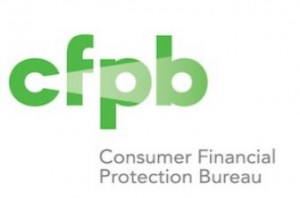 After months of back-and-forth between delays and grace period conversations, the Consumer Financial Protection Bureau [1](CFPB) finally launched the TILA-RESPA Integrated Disclosure [2](TRID) rule nearly four months ago. But were there mistakes and confusing wording in the 1,888-page regulation that went overlooked?
After months of back-and-forth between delays and grace period conversations, the Consumer Financial Protection Bureau [1](CFPB) finally launched the TILA-RESPA Integrated Disclosure [2](TRID) rule nearly four months ago. But were there mistakes and confusing wording in the 1,888-page regulation that went overlooked?
While the mortgage industry has been working to adjust to the new rule, a "typographical error" was sitting among the many pages of the regulation, according to the Federal Register document [3].
"Today we published a notice in the Federal Register to correct a typo regarding tolerances for property taxes and certain other property-related costs that was found in the “Supplementary Information” to the TILA-RESPA Integrated Disclosure rule," the CFPB Regulatory Implementation Team said in an email to subscribers.
The CFPB noted that the Supplementary Information to the TILA-RESPA Final Rule contained a typographical error regarding the application of tolerances to property insurance premiums, property taxes, homeowner's association dues, condominium fees, and cooperative fees.
The CFPB said that the correction is effective immediately.
The CFPB identified and corrected the following errors:
- On page 79829 of Volume 78 of the Federal Register, in the first column, in the sentence containing “property insurance premiums, property taxes, homeowner’s association dues, condominium fees, and cooperative fees,” the phrase “are subject to tolerances” should read “are not subject to tolerances.”
- Additionally, the 2013 Supp. Information sentence being corrected here is inconsistent with the sentence that precedes it, because the preceding sentence states that “property insurance premiums are included in the category of settlement charges not subject to a tolerance, whether or not the insurance provider is a lender affiliate.”
- On page 79829 of the 2013 Supp. Information, regarding “property insurance premiums, property taxes, homeowner’s association dues, condominium fees, and cooperative fees,” the phrase “are subject to tolerances” should read “are not subject to tolerances.”
- On page 79829, in the first column, in the 48th, 49th, and 50th lines, revise “are subject to tolerances whether or not they are placed into an escrow, impound, reserve, or similar account” to read “are not subject to tolerances whether or not they are placed into an escrow, impound, reserve, or similar account."
"In a nearly two thousand-page set of regulations, there are bound to be a few 'typographical errors.' That said, for the majority of the industry, there’s nothing really groundbreaking about this notice," said Michael Cremata, Corporate Counsel at ClosingCorp [4]. "While I know a few had taken a very conservative stance and were treating these fees as zero tolerance, the majority of the industry—including we at ClosingCorp—were confident that they should not be held to tolerance because they are charges 'not required by the creditor.' What is encouraging about this notice, though, is that it shows a willingness on the part of the CFPB to address confusion about TRID head-on, and in an official capacity. One of the most common complaints we hear from the industry regarding TRID is about the overall lack of formal guidance from the Bureau. So I think the industry is really clamoring for information like this, and we can only hope that today’s notice is the first of many from the CFPB addressing common areas of confusion within the regulations.”
“Calyx read the entire context of this section and understood the meaning of the rule. The correction doesn't affect us and there are no changes we need to make," said Dennis Boggs, EVP of Business Development at CalyxSoftware [5]. "We believe others in the industry understood the context of the rule and will not be effected.”
Snapdocs [6]CEO Aaron King told MReport that "tolerances mean variances. The CFPB’s typographical error in the mortgage disclosure rule should not have impacted borrowers in a negative way, because, even though buyers may have been under the impression that they could have been charged an amount higher at the closing table than previously disclosed for property insurance premiums, property taxes, homeowner’s association dues, condominium fees, and cooperative fees, the reality is that they could not have been. These fees quoted by lenders on the Loan Estimate would have been the same at the closing table, so there should have been no surprises."
Click here [3]to view the Federal Register document.